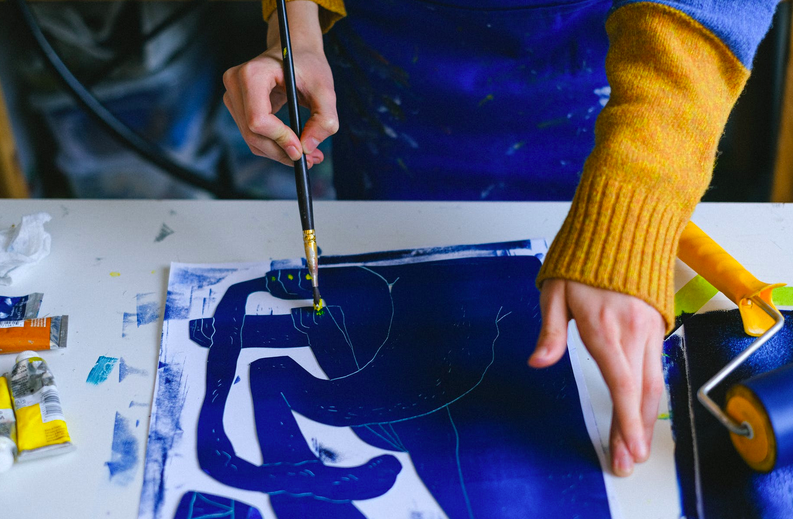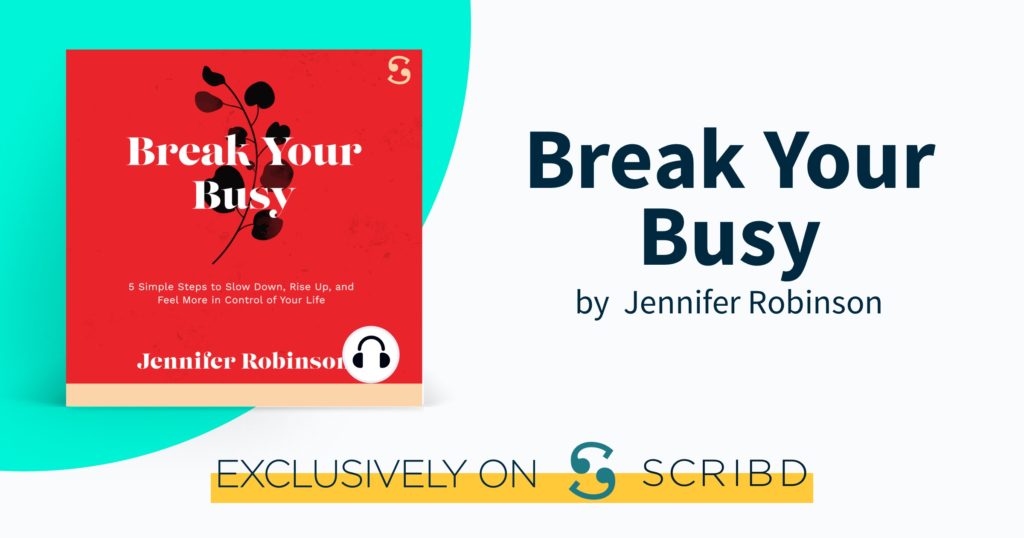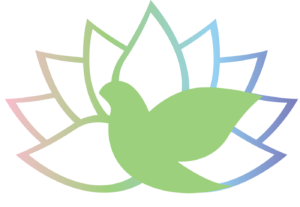One of my favorite things about writing is daydreaming. For a moment, or several, I can be in another place or time without effort.
You would think that this would make writing easy, having seen a whole story in a half hours time. And yet, when I sit down to write I’m stumped. The idea is as real as a wisp of smoke that I’ll never grasp.
This used to be a source of panic. Now I recognize it as a learning curve. The frustration you feel when an idea is stuck isn’t a block. The thought isn’t gone. You just haven’t figured out how to coax it from your head to the page without letting your mind get in the way.
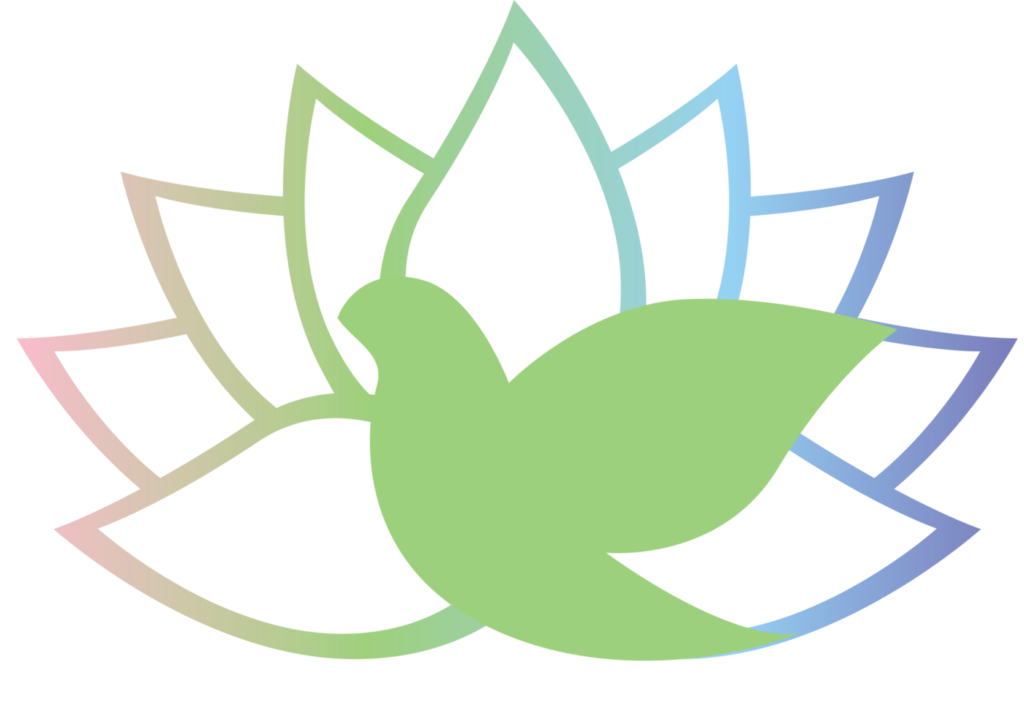
Join our Community of Peaceful Living Wellness Warriors
and receive a special free gift:
Our Top 5 Tips for Peaceful Living
As an artist, your ego will present itself in several forms. When an idea feels too stubborn, broad or difficult, it will encourage you to jump ship to save face. It doesn’t want you to own your process because it fears you won’t be good enough.
Creating to be ‘good’ is a disastrous plan. You wind up with a two dimensional work that neither looks nor sounds like your craft.
Good is subjective. Your voice is not.
How To Play ‘What if?’
The other day I walked out my front door, minutes away from leaving for a flight when I was shocked by two small birds in my hallway, arguing. One perched on a sprinkler while the other frantically twittered about, perching next to its companion before flying away and coming back to hover again.
And I wondered: what if this bird sh*ts on my head while I make my way to the stairs?
It would certainly be a predicament. Pilots don’t wait because you’ve got to wash your hair again.
This arbitrary thought begged the question – what if? Indeed, what if I did need to run back into my apartment and somehow wash my hair, re-do my makeup AND leave in five minutes?
What if a character left anyway, without going back to their apartment? How would he or she handle this situation in transit? Upon arrival? What adventure would befall them, set in motion by a chance moment?
This is the glory of the what if game. When you have a stray thought or an idea you find curious, throw it in the pot and ask What If? Twist the idea to fit as many angles as you can. Play with different genre themes as prompts. How would the situation unfold in a rom-com? A horror movie? What about film noir?
The What If game is brilliant in a sense because it is a game. The point is to engage and exercise your imagination. Have fun, whether you’re working with an idea that’s been simmering or a stray thought that’s just occurred to you.
Suddenly, you’re not stressed about how to get started. You’re already on the journey. See what interests you, without pressing any other thoughts or responsibility on the moment.
Related Post: How Bad Art Builds Your Future
Enjoy Making ‘Bad Art’
The beauty of playing What If is that it also encourages you to have fun with terrible ideas. You can be silly, goofy, downright awful – and think nothing of it. Suddenly, you’re not staring at a blank page and a blinking cursor, wondering if you should clean the tile grout instead.
You’re traveling with your character. You’re experiencing what they see and who they’ll become.
Your perspective has changed. Instead of trying to be good, you’re living the story and it doesn’t matter if a line is good or bad because you can always go back.
This is what it means to enjoy making bad art. It’s a process of development. Your first draft creates your dark room, fumbles with the undeveloped film. There’s no way to see the final image without it.
Writing is a different craft, in the sense that you have no beginning medium to work with. There is no physical canister of film, subject to paint or bolt of fabric to guide you. A luxe silk velvet will whisper ideas of what it could be. A blank leather-bound journal is a magnet. It will draw you in but tell you nothing, holding only a crackling stillness and space.
And just when you think you understand it, you might discover that you don’t.
Know When To Ask ‘How?’
If you want to kill an idea, just ask it how it will work. An idea is not ready to carry that weight. You’re asking for a map to a place or moment that doesn’t exist yet. It’s no different from waiting for motivation or inspiration to strike – you’re just stalling.
Rather than asking your idea how it will work, return to the question of what if? As you explore different scenarios the question of how will inevitably creep back in, especially if this is a new exercise to you. Remain mindful and keep writing.
When you’ve reached the point where you can take a breath and stretch your cramped hand, knowing that your characters are in motion with what may be solidified motives and intent, ask yourself: how does this work?
(Note: If your plot is still unclear, it’s too soon.)
Asking ‘How does this work?’ is an opportunity to observe your work through a fresh lens, looking at every action and reaction caused by each individual word. Rather than testing the strength of an idea, you’re actively looking for weak points and repairing any holes. You’re working within your craft for the love of it, rather than from your ego.
If there’s one thing good editing will teach you, it’s how to be humble. Editing will not be kind to your feelings, nor should it. The only thing that matters during this stage are your story and those in it.
The point is not to challenge or judge your craft, but to see it. Where are your weak links? What drives the story? Are you curious about what’s happening and why and what comes next?
Asking yourself ‘How will this work?’ avoids the questions that matter.
Trust In Your Own Process
Your creative process will be full of exceptions to the rule – loopholes that you’ve created because they’re what distinguishes your art from another’s. In the moments of doubt as you create art from an idea, travel blindly. Stumble, and be okay with it.
Your first written line is rarely the one that’s read.
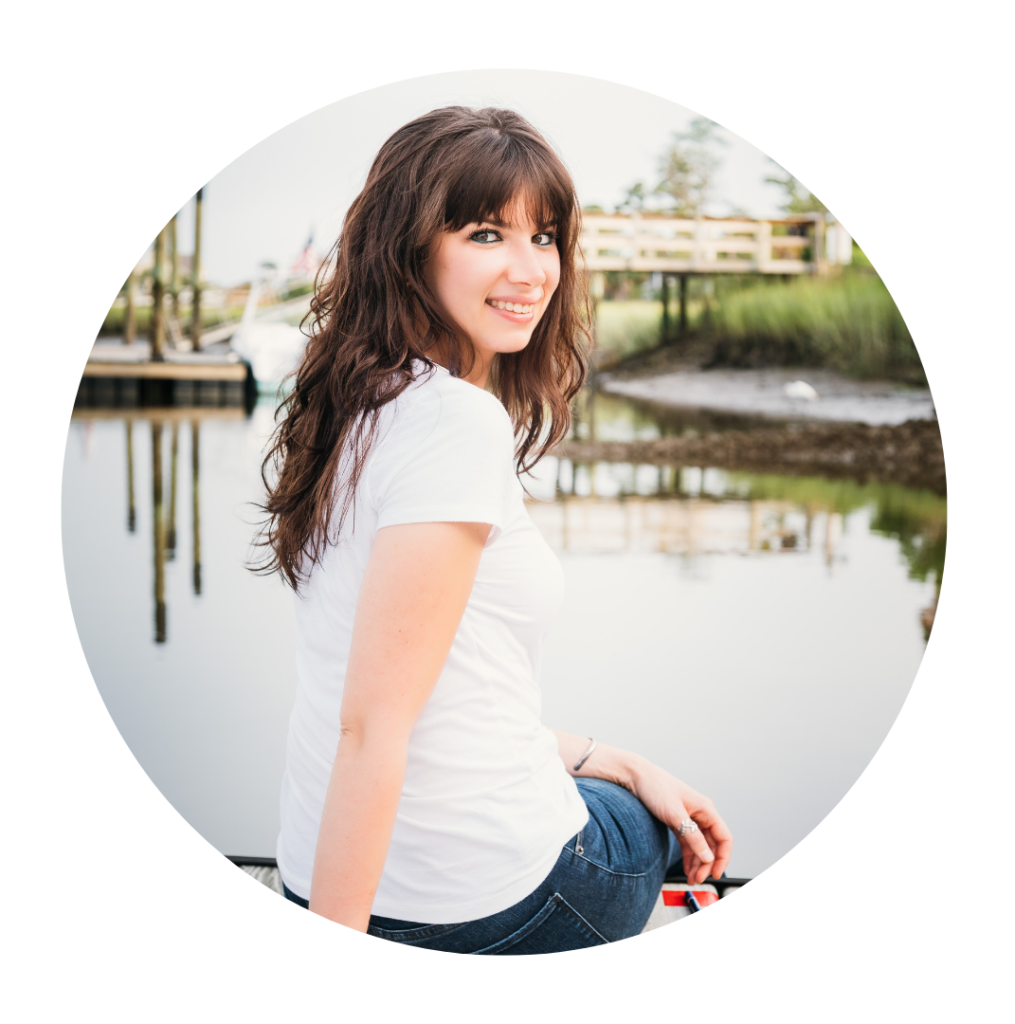
SAMANTHA PATERNOSTER
Writing is much bigger than a career. It’s more interesting than a hobby. It’s the spark to an eternal curiosity that has led me to learn unexpected skills, treasure knowledge passed down through generations, and create a space for voices that need to speak.
I earned my B.A. in Creative Writing from Brandeis University, with a focus on long and short fiction. I have nearly a decade of experience as a copywriter and editor. But I’ve also worked as an Email Analyst and QA Analyst at Yale University, helping to launch their redesigned Giving page circa 2014.
Most recently, I’ve started my own business – Creatively You. Built for my clients, it is founded on one simple act: listening. By listening to my clients’ dreams and needs, I am able to help them develop their brands through cohesive web design and content that tells their stories.
I don’t believe in linear paths. I do believe in the magic that embracing the unknown can bring.

